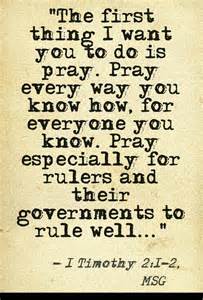“Lost Sheep”

Matthew 9:35-10:1 (9:36) – June 14, 2020
In college, I can remember times when I heard fiery sermons about missionaries, and about how God provided the world as a harvest field for the followers of Jesus. I can remember how the preacher would thunder “the harvest is plentiful, but the workers are few! Pray that the Lord will send out many into God’s harvest fields!”
I attended a Christian college, and I did hear a number of sermons like that. Yes, that Bible reading is from Matthew 9:37. Perfectly appropriate for preachers to take this verse and highlight it in a sermon meant to urge people to go out to the mission field. The very next verse is where our Lord Jesus chooses the 12 disciples, and commissions them to go out into the villages and towns and heal, preach and do just what Jesus had been doing.
However, when I read these verses from Matthew to prepare a sermon for today, I was drawn to the previous verse, verse 36. “When Jesus saw the crowds, he had compassion on them, because they were harassed and helpless, like sheep without a shepherd.”
I am NOT going to focus on the harvest being plentiful, and the workers being few – in that case, this would be a very mission-oriented sermon. I do preach mission-oriented sermons when I feel God leading me that way, but for this Scripture reading at this particular time, I see a different picture. Instead of God sending followers out into the world, I see Jesus full of compassion and caring. I see Jesus as a loving Shepherd, caring for His lost sheep who don’t even know they are without a shepherd.
Many, many people around the country have not been in physical contact with anyone else for a long, long time. In some cases, for months. People are still suffering from social isolation, from limited and limiting conversation from behind a mask, at a socially-acceptable distance of six feet—or more. Have you felt isolated and alone? Have any of your extended family, or loved ones, or friends been in that situation? Jesus would be able to give you a hug, for sure. As a Shepherd, Jesus would certainly lift up and carry little lambs in His arms.
Can you imagine how comforting that would feel, to be held in the arms of our Lord Jesus? What a wonderful feeling, to be protected and made secure by our Heavenly Shepherd.
For those who did not know, I am in the middle of a 4-part community video series involving the recent months, the pandemic and the shelter-in-place order in Illinois. This series is in collaboration with the Morton Grove Chamber of Commerce. I am the host and narrator for the project, and we are very grateful to the Village of Morton Grove and associated departments for all their help in making this series a reality.
As I think back a month, to the beginnings of this idea for a video series, it all started with a conversation. Or rather, two conversations, with Father Dennis and with Mark, the Director of the Chamber of Commerce. In both, we talked about how disconnected and discouraged many people felt. All three of us – Father Dennis, Mark, and I – had many people sharing with us how disheartened they were, for a number of reasons, all stemming from the pandemic, the shelter-in-place, and the social isolation that gripped so many across our nation.
Which leads me back again to this verse from Matthew 9:36, where the Rabbi Jesus spoke of compassion, and nurture, and how Jesus cares for each of us as His sheep. Jesus did not just preach from a pulpit, or up front on a raised platform, separated from all the other sheep—I mean, people. No, Jesus had compassion on these lost sheep.
Jesus felt such love and compassion towards these members of the house of Israel, He felt it deep down to his “splachna,” down to His guts, or bowels. According to the original Greek, in the first century, to be moved right down to one’s bowels was to be moved with compassion, or to have compassion inside. The bowels – or guts – were thought to be the seat of love and pity at that time. This expression denotes the very heart of Jesus’ understanding and personhood.
With Jesus, His compassion was not impersonal or disembodied. He did not simply see abstract problems that could be explained away. Instead, Jesus had compassion on real people. He saw each individual, the real self inside, and considered each one worthy of compassion and care. “To know that someone has seen the real self, hidden underneath and still manages to love and accept us. What a profound difference that makes in our lives, in our hearts, in our self-image. Can we do less when we seek to engage the community around us?” [1]
What an earth-shattering thing, for Jesus to see us, to know us deeply, down to our hearts. We can praise God for this wonderful certainty, even as we are in the midst of such anxiety and fear. As a community, we can gather together to name our stresses and losses, and to grieve and mourn. Yet, Jesus shows us how to have compassion on ourselves and on others.
Morton Grove and the surrounding neighborhoods are finding resilience, togetherness, hope and even joy. Praise God for the example of our Lord Jesus. We can join (virtual) hands in community. Is there any better, more holy calling than to make friends with everyone we meet?
Remember, God loves everyone, no matter who. And, we might be surprised at who becomes our new friend in the Lord as we show compassion, too.
[1] https://www.umcdiscipleship.org/worship-planning/open-our-eyes/second-sunday-after-pentecost-year-a-lectionary-planning-notes/second-sunday-after-pentecost-year-a-preaching-notes
(Suggestion: visit me at my regular blog for 2020: matterofprayer: A Year of Everyday Prayers. #PursuePEACE – and my other blog, A Year of Being Kind . Thanks!

